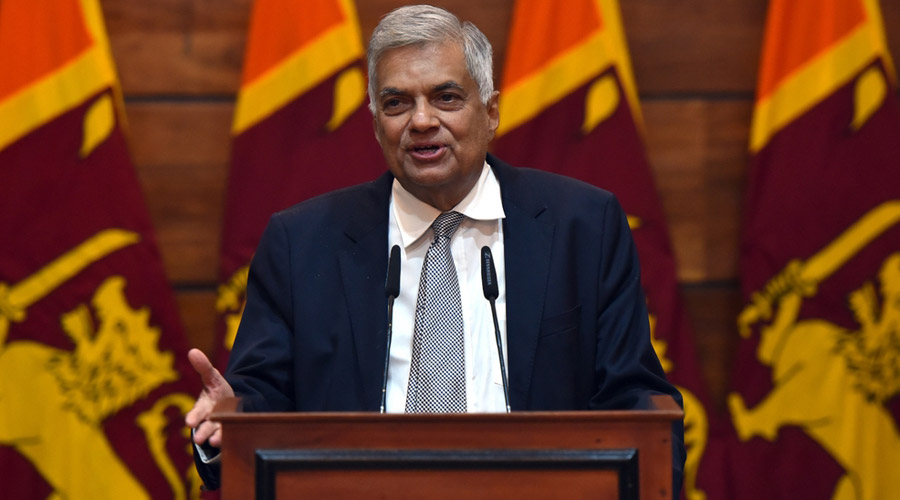Sri Lanka's Parliament passed the interim budget presented by President Ranil Wickremesinghe for 2022 on Friday, a day after the IMF announced it will provide a loan of about USD 2.9 billion to help the crisis-hit country tide over its worst economic hardships.
The budget was passed with only 5 members voting against it. Three legislators from the Janatha Vimukthi Peramuna (JVP) and two MPs from the All Ceylon Tamil Congress voted against the interim budget.
A total of 115 members in the 225-member assembly voted in favor while the main opposition SJB abstained from voting.
Wickremesinghe aimed for tax reforms while allowing relief to the most vulnerable groups affected by the ongoing economic crisis in the island nation.
The interim budget introduced a number of tax reforms pertaining to income tax, value added tax (VAT), telecommunication levy and betting and gaming levy. VAT rate will be increased to 15 per cent from the current rate of 12 per cent with effect from September 1 this year.
It was only in June that VAT was increased to 12 per cent from 8 per cent.
Wickremesinghe, who is also the finance minister, said the implementation of these proposals will help increase the revenue and gradually reduce the printing of money for government expenditure.
Sri Lanka is going through its worst economic crisis since its independence in 1948 which was triggered by a severe paucity of foreign exchange reserves.
The IMF on Thursday announced that it will provide Sri Lanka a loan of about USD 2.9 billion over four years under a preliminary agreement to help the bankrupt island nation tide over its worst economic crisis and protect the livelihoods of the people.
Sri Lanka, a country of 22 million, plunged into a political crisis in July, after former President Gotabaya Rajapaksa fled the country following a popular public uprising against his government for mismanaging the economy.
Rajapaksa was replaced by his ally Wickremesinghe.
The country is also expected to restructure its debt worth USD 29 billion, with Japan expected to coordinate with other creditor nations, including China on this issue.
In mid-April, Sri Lanka declared its international debt default due to the forex crisis. The country owes USD 51 billion in foreign debt, of which USD 28 billion must be paid by 2027.
There have been street protests in Sri Lanka against the government since early April due to its mishandling of the economic crisis.










